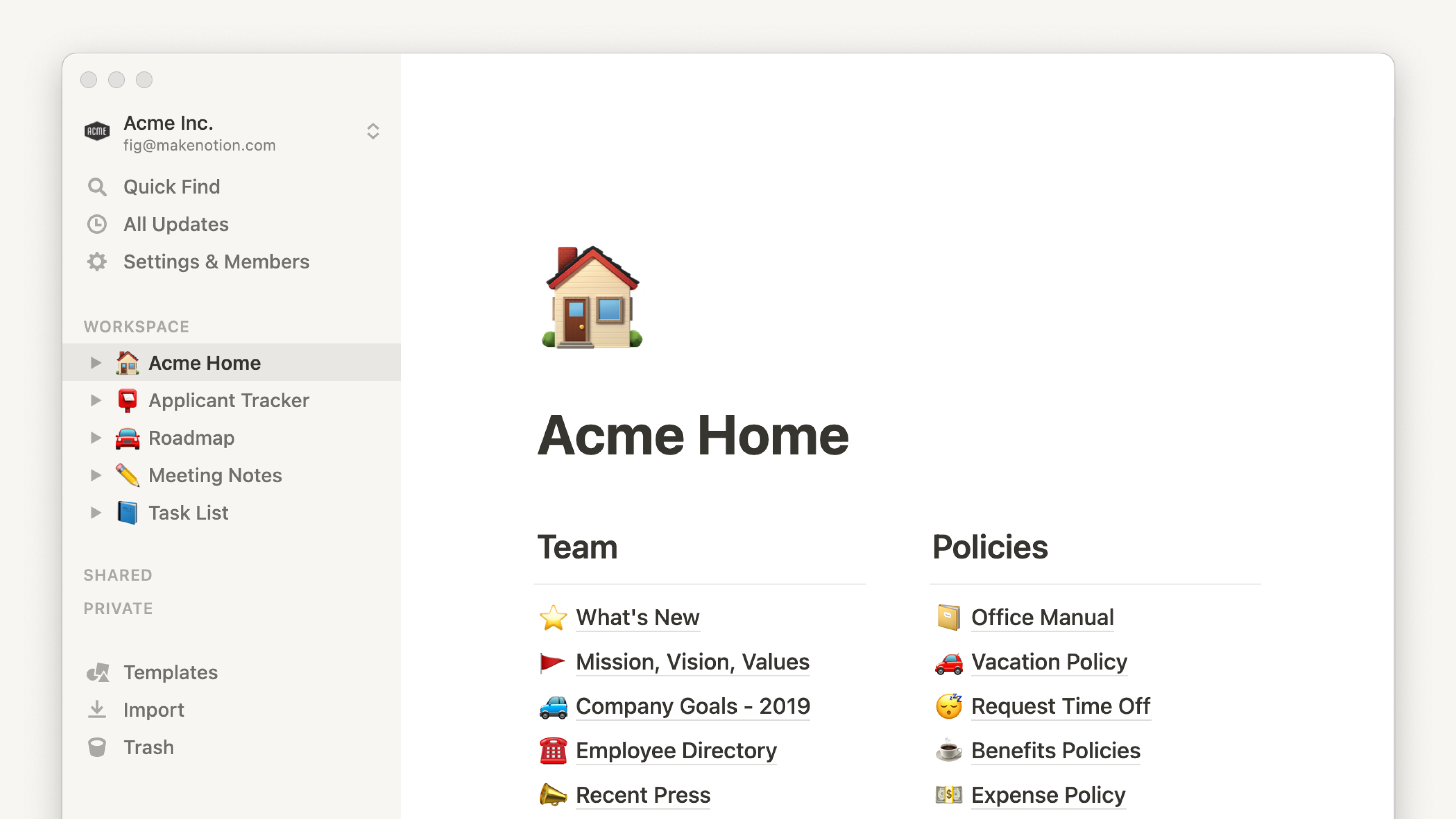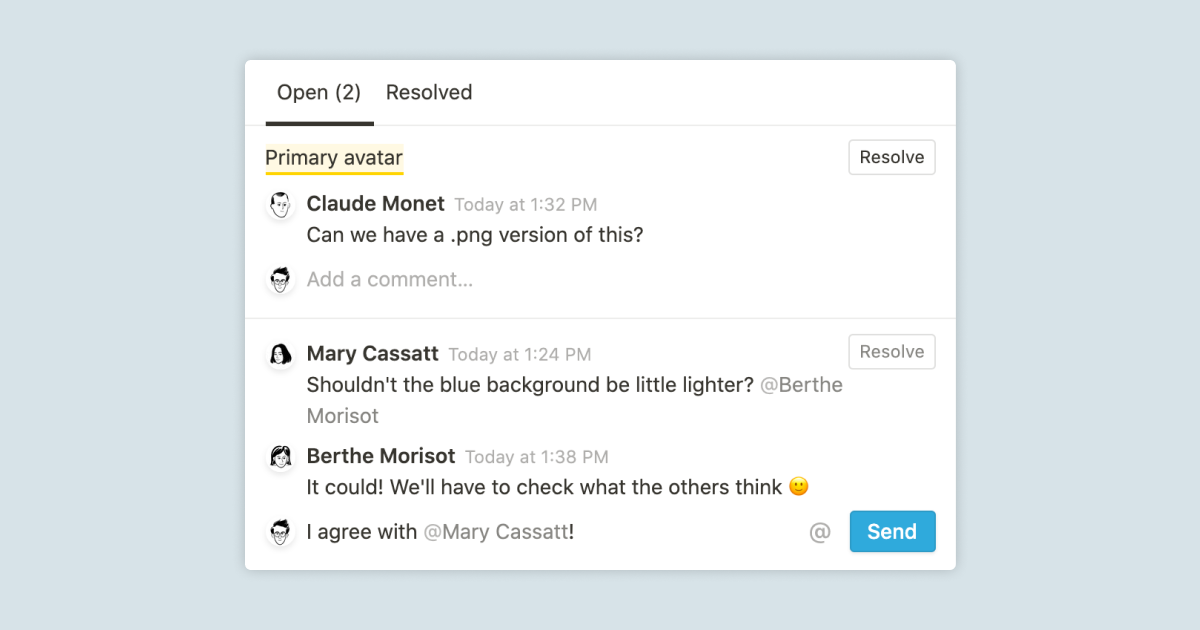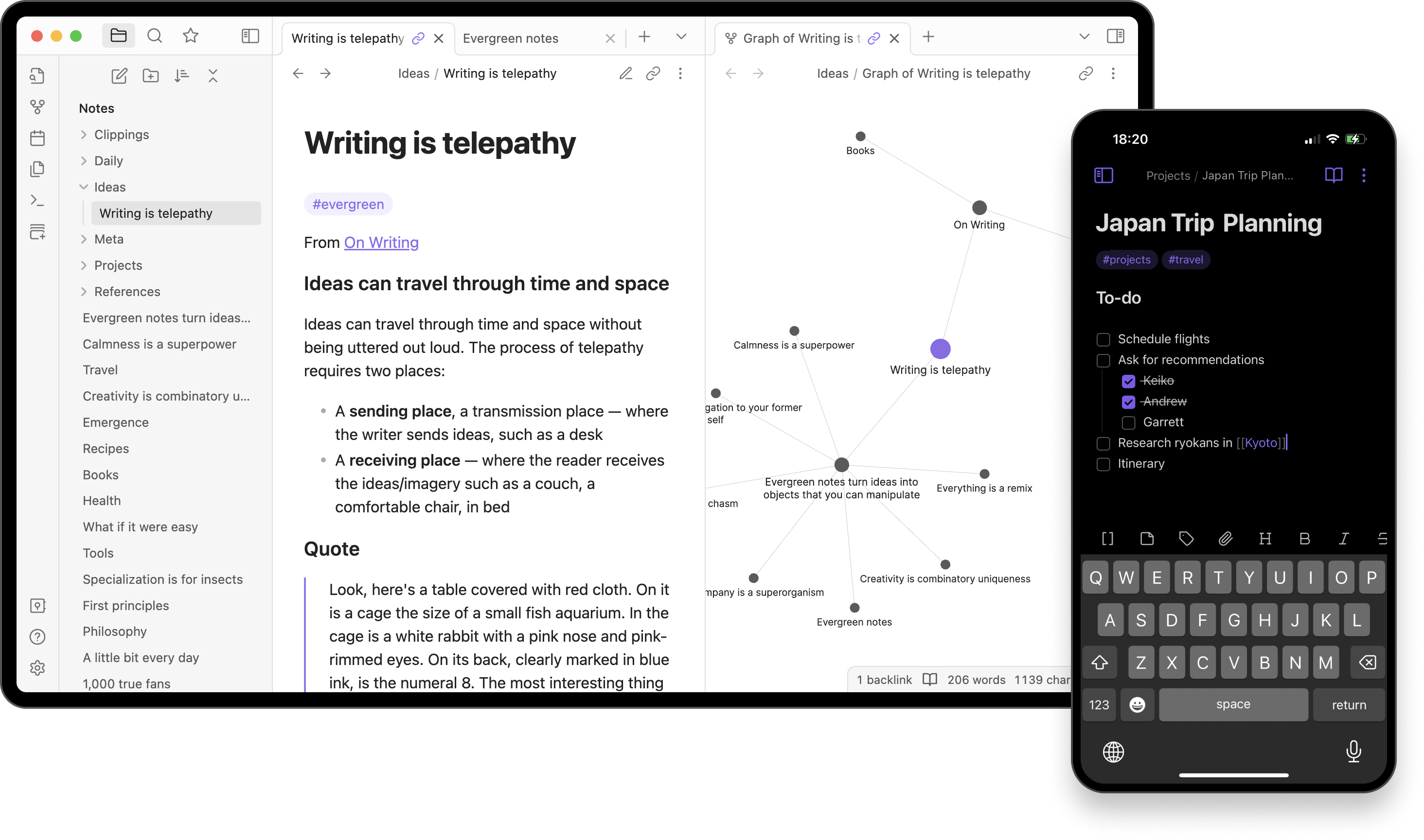Note-Taking Apps - Notion or Obsidian?
Notion and Obsidian are two very powerful note-taking apps (even if they are not just note-taking apps in the truest sense), and today I will talk about their pros, cons, and applicability to see if Obsidian can replace Notion.

Brief Introduction
If you work in a team and team collaboration is an important part of your job, or you need to manage a large and complex project through a note-taking app, or you need to use it frequently across platforms, then Notion is definitely for you. The ease of kanban board, comments, notifications, and note sharing in Notion makes Notion stand out in several of the situations mentioned above.
But if you care more about note-taking compatibility (portability), privacy, more customization options, or taking notes offline, then Obsidian is better for you. Obsidian’s notes are stored locally and privately. What sets Obsidian apart from Notion is that Obsidian offers a variety of community themes to change the look and feel of the app. At the same time, Obsidian also offers some plugins to increase the degree of customization.
My Suggestion
Currently, I use both Notion and Obsidian. I used to think that I could only use one app to record everything I had so I could be more focused and productive, but this is not the case. Developers create these products to solve problems. No one is perfect, and the same is true for products, which are not perfect. Both Notion and Obsidian apps have their own pros, cons, and strengths. So I didn’t discard any of them, but chose to use them at the same time.
Notion

Notion is much more famous than Obsidian. There are a lot of related videos available on YouTube, giving the impression that all influencers are using Notion.
Notion is very flexible and has a lot of features. According to Notion’s website, the app can be used as a note-taking app or for text editing, two features that allow Notion to replace Evernote and Google Docs. Notion can also be used for project management, replacing Trello, Jira, Asana, and other tools used by thousands or even tens of thousands of teams around the world. Notion can also be used to write wikis, which replaces Atlassian’s Confluence and GitHub Wikis.
Pros of Notion
- Strong teamwork skills. Documentation is easy to share. You can write comments under the documentation or @ other members of the team in the document.

- There are many templates. First of all, the official templates made by the Notion team are diverse, and they are all very good, and they are also very convenient to use with one click duplicate. Other users in the Notion community can also create their own templates, which can also be duplicated with one click.

- Notion also has many powerful features, such as database synchronization, combining multiple blocks, and more. However, it requires some learning costs, but these powerful features are also considered its advantages.
Cons of Notion
-
Privacy. Notion’s notes aren’t end-to-end encrypted. And when you need Notion support, Notion employees can see your entire workspace (I haven’t had a need for support at this time). Images or files uploaded to Notion are accessible, as long as someone holds the URL of one of your attachments (IT doesn’t know about it, they can understand the URL as a link), and that person can directly see your file under that URL when they visit this URL. Although the link is hard to guess, some users definitely hate it when their images or attachments are made public.
-
When opening some large databases, there may be lags. I believe no one likes the feeling of sometimes can’t wait to open a database but can’t get in for a long time.
-
Cannot be used and saved offline. To use Notion and save your edits, you need to be connected to the internet, otherwise you can’t save them.
Obsidian

Obsidian is a knowledge building tool and note-taking based on locally stored and plain text markdown files app。 There is a sentence on Obsidian’s official website: “A second brain, for you, forever.” Chinese means “your second brain forever”, which is very attractive to potential users. Because our brains are not coherent in the first place, we always jump from one idea to another. In such cases, a tool that connects the notes we take into a network of knowledge makes a lot of sense.
Pros of Obsidian
-
Obsidian’s files are stored locally. You can edit your notes without any internet connection.
-
Obsidian’s file format is all .md (markdown files), which makes notes under Obsidian easier to port than notes in Notion. Moreover, many applications support markdown files, such as Notion, Evernote, Bear, etc.
-
Obsidian’s Graph View is the most amazing feature in my mind. Obsidian organizes all the notes from this workspace into a knowledge network. You can get an overview of your entire workspace, sort out the relationships between concepts, and so on. This can help you memorize or digest some knowledge.

-
You can also publish your notes easily and quickly through Obsidian Publish.
-
Many themes are available to change the look of the app. There are also many plugins to increase its functionality, such as calendars, mind maps, and more.

Cons of Obsidian
-
Obsidian requires payment to sync between iPhone and MacBook (the same is true between the mobile and PC versions).
-
Not friendly to users who don’t know about markdown. If you want to take notes efficiently in Obsidian, you must learn markdown syntax. People with a programming background may find it simple, but the average user will find it a hassle to switch back and forth between editing and viewing modes.
Summary
Obviously, there is no winner or loser. Both apps are powerful, free for personal use, and offer some paid features. Notion is an efficiency and team collaboration app, which can also be used as a knowledge system or personal hub. Obsidian, on the other hand, focuses more on note-taking, portability, and excellent graph views to connect knowledge or concepts.
Which one will you choose?